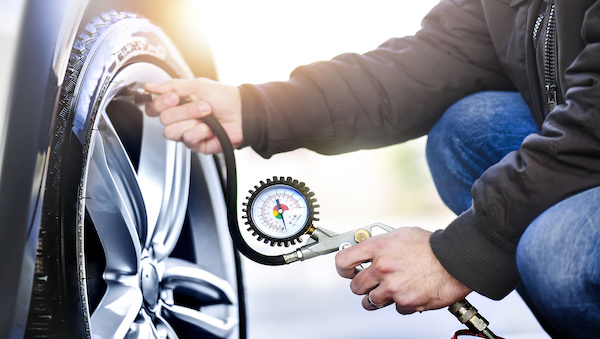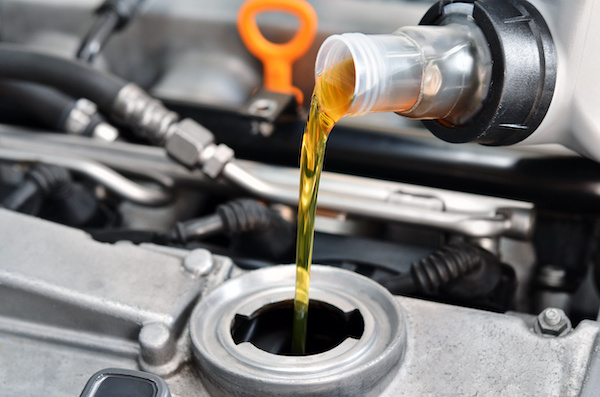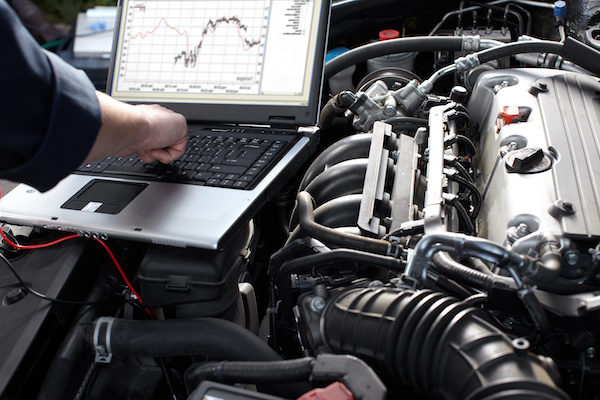Posted on 7/30/2023

Steering problems can affect a car's performance in many ways. A malfunctioning steering system can make driving difficult, compromise safety, and lead to costly repairs. To help you identify common steering issues and find the right solutions, we created this troubleshooting guide for common steering problems and their solutions. Power Steering Problems One of the most common steering issues is related to power steering. If you experience any of the following symptoms, it could be a sign that your car's power steering system needs attention: Grinding or whining noise when turning the wheel Difficulty in turning the wheel Unusually high effort (more than usual) needed to turn the wheel Fluid leak near the power steering pump Steering wheel vibration If your car is exhibiting any of these issues, it's important that you take it to a reliable auto repair shop for an inspection and diagnosis. The most common cause of power steering problems is low fluid levels. Low flui ... read more
Posted on 6/29/2023

Maintaining proper tire pressure is essential for safe and efficient driving. In this article, we will guide you through the process of checking your tire pressure and explain why it's crucial for the overall performance and longevity of your vehicle. Tools Needed For accurate tire pressure checking, you'll need a few tools: Tire Pressure Gauge Air Compressor Steps to Check Your Tire Pressure Recommended Pressure: Check your vehicle's manual, the driver's side door jamb, usually measured in pounds per square inch (psi). Valve Cap: Unscrew and remove the valve cap on the tire you want to check. Place it in a secure location, so you don't lose it. Use the Tire Pressure Gauge: Press firmly the tire pressure gauge onto the valve stem. You might hear a slight hissing sound, but that's normal. The gauge will display the current tire pressure reading. Adjust Tire Pressure: If the tire pressure is too low, use an air compressor to add air gradually. If the press ... read more
Posted on 5/30/2023

One crucial aspect of engine care is regular oil changes. While many car owners know this task's importance, there needs to be clarity about how often it should be done. The frequency of oil changes depends on various factors, including your driving habits, vehicle make/model, and the type of oil you use. Understanding these factors can help you optimize your engine's performance and extend its lifespan. Let's explore how often you should get an oil change! Consult your vehicle's manual: Your vehicle's manual is a valuable resource that provides manufacturer-recommended guidelines for oil changes. It takes into account the specific requirements of your engine. Follow the mileage interval: Most manufacturers recommend an oil change every 5,000 to 7,500 miles, depending on the type of oil used. Conventional oil typically requires more frequent changes, while synthetic oil can last longer (up to 10,000 miles) due to its superior properties. Consider your driving con ... read more
Posted on 4/30/2023

As motorists, you want to make sure you're doing everything right to keep your vehicle in top shape. We understand that no driver is perfect. However, some common mistakes are being made everyday unknowingly. Here are some common mistakes drivers make that they probably aren't even aware of: Riding the Brakes One of the most common mistakes drivers make is riding the brakes. This is especially true when driving down hills. When you constantly apply the brakes, it can cause overheating, and the brake pads can wear out faster than they should. Ignoring Warning Lights Your vehicle has warning lights for a reason. If a warning light comes on, it's best not to ignore it. Ignoring warning lights can lead to more significant and costly problems down the road. Not Checking Tire Pressure Maintaining the proper tire pressure is essential for your vehicle's overall performance and fuel efficiency. Underinflated tires can lead to premature wear and tear on yo ... read more
Posted on 3/29/2023

Gone are the days when auto mechanics had to rely solely on their experience and intuition to diagnose car problems. Today, modern vehicles come equipped with computer systems that monitor and control various aspects of their operation. These systems produce a wealth of information that can be accessed through computer diagnostics. Here is a guide on what computer diagnostics can do for your vehicle. What is Computer Diagnostics? Computer diagnostics are a set of tools and software that enable auto mechanics to communicate with a vehicle's onboard computer system. These tools can read and interpret diagnostic trouble codes (DTCs) generated by the computer system, which help identify the root cause of a problem. What Can Computer Diagnostics Do? Identify Problems: The primary function of computer diagnostics is to identify problems with your vehicle. The diagnostic tool can read DTCs and provide a detailed report on any issues with your vehicle's engine, tr ... read more